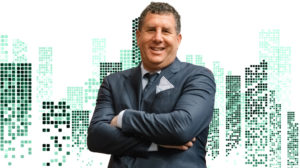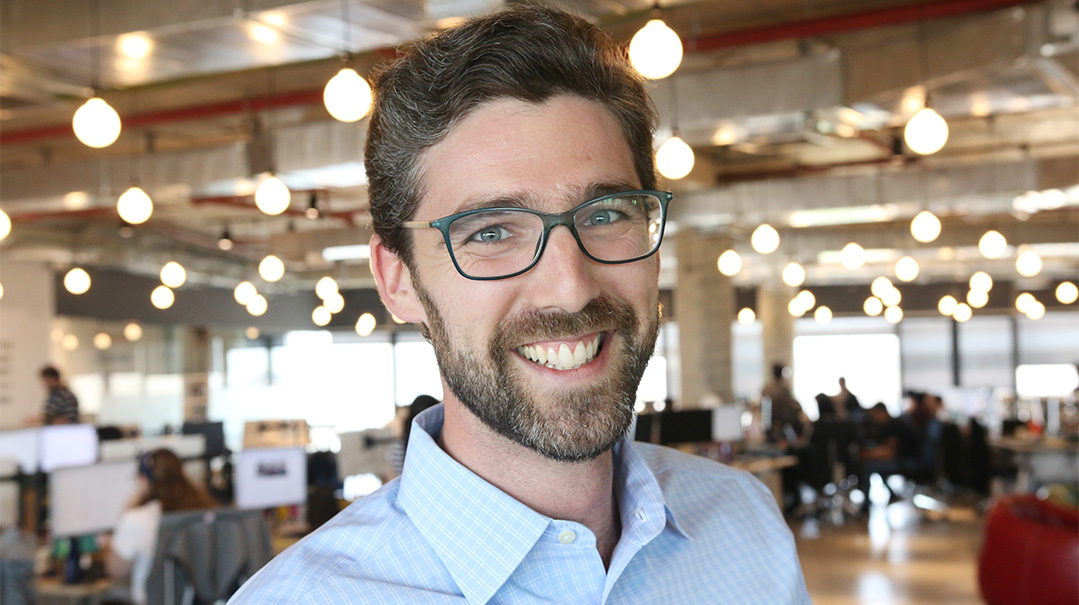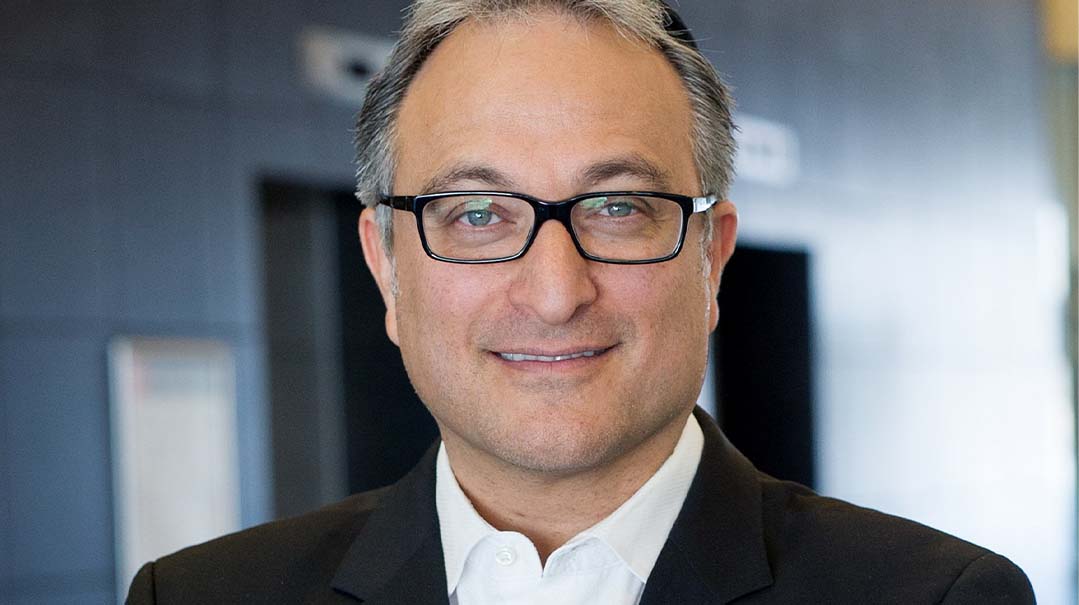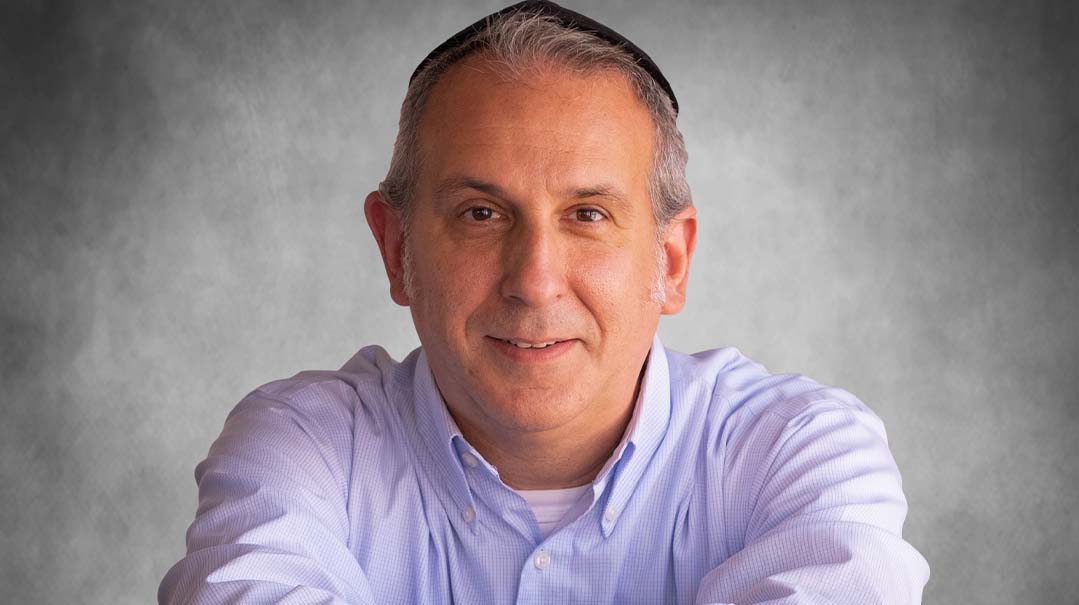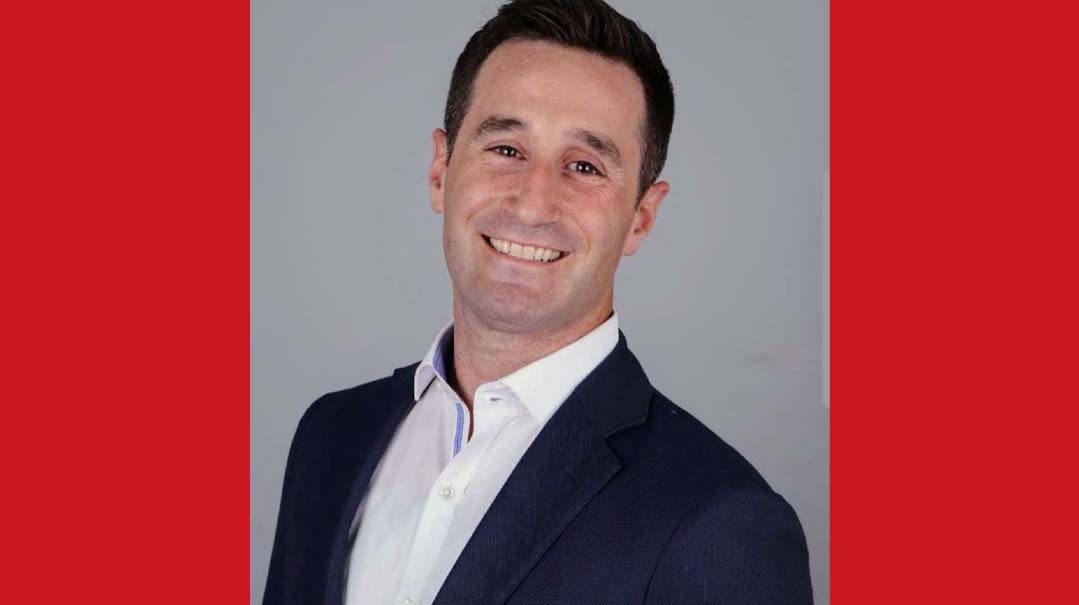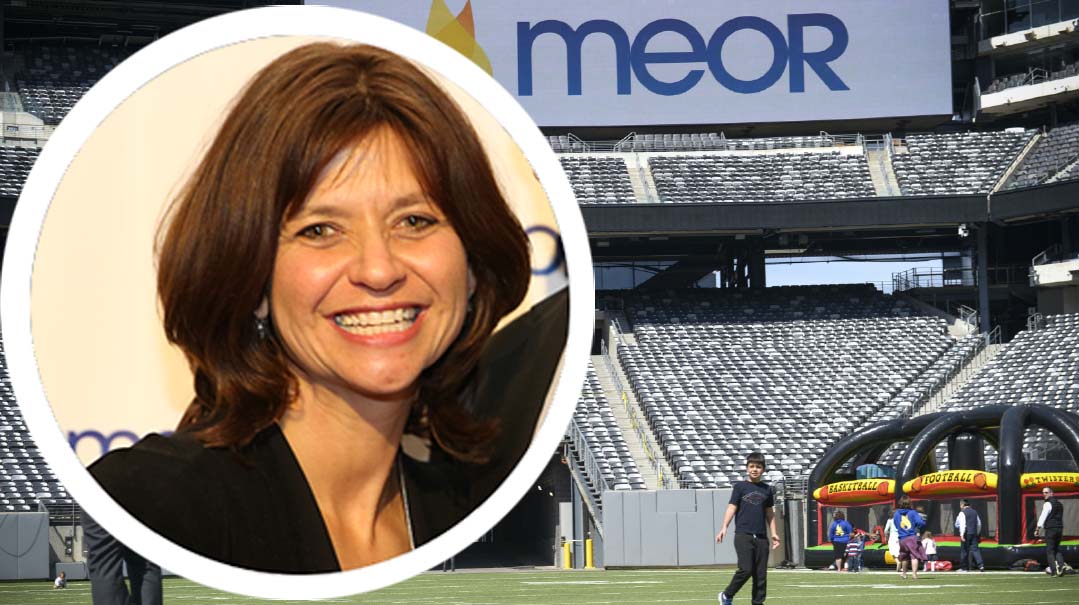Work/Life Solutions with Talia Mashiach

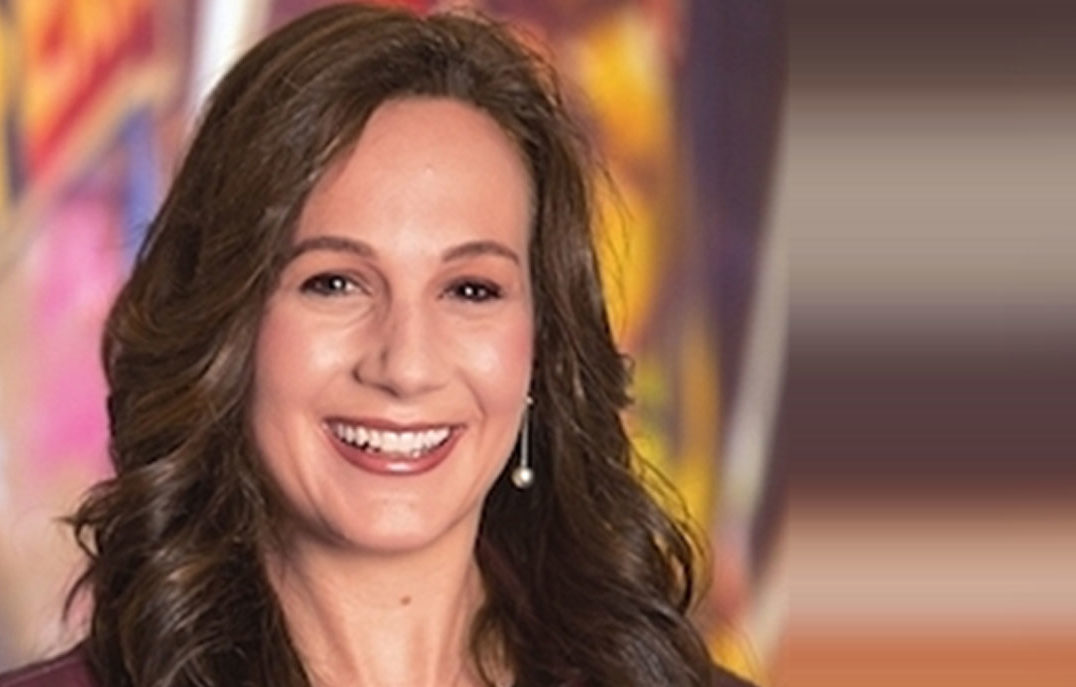
Who Talia Mashiach, founder and CEO of Eved, a high-growth start-up revolutionizing the $650 billion event industry.
What Eved provides a software and payment platform for large enterprises (including Dell, Gap, and Allstate) to process invoices for conferences they host, thereby gaining real-time transparency into company-wide expenditures. The visionary behind the product, Talia raised $24 million in venture capital and oversees 49 employees in her US and Europe offices (and soon-to-be in China!).
Where Talia and her family live in Chicago, where she is active in her community. She is on the board of the Illinois Holocaust Center and Chicagoland Entrepreneurial Center, and a member of the Young Presidents’ Organization. She’s also been coaching girls basketball for ten years (with the JCC, Chicago youth organization Madraigos, and her daughter’s day school), teaching girls from a young age to be leaders — on and off the court.
Why While I often get suggestions for column interviewees, it’s rare to hear the same name multiple times. When several friends encouraged me to profile Talia, I dug deeper — and instantly learned why. In the professional world, Talia has gained much recognition: on Crain’s Chicago’s Tech 50 (the second year in a row); a finalist for the Midwest region for Ernst & Young’s 2018 Entrepreneur of the Year; and induction into the Chicagoland Entrepreneurship Hall of Fame. At the same time, she’s a sought-out speaker for numerous Jewish organizations, demonstrating that you can be a frum woman with a traditional role in your home … and a successful entrepreneur and CEO.
1 of 9 What opportunities or personalities played a role in your career?
My parents, Stan and Phyllis Jaspan, had an incredible influence on my life. They’d always say their job was to create the strongest roots and wings possible for their children, and then let them fly. They gave me very strong roots and wings.
My mother stayed at home and created a feeling of love, warmth, and comfort. My father worked very hard as an attorney and volunteered as a leader in our community in Milwaukee. A graduate of Cornell and later Yale Law School, my father started as a summer associate in a Milwaukee law firm and worked his way to the top. He’s still at the same firm today as the managing partner.
My father was president of the Milwaukee Jewish Federation, as well as a founder of the first Orthodox shul in Glendale, Wisconsin, and many other organizations. He learned communal responsibility from his parents; they were among the pioneers who helped build the thriving Jewish community in Woodmere, New York. Yeshiva of South Shore recently honored my late grandparents for their work with Rabbi Binyamin Kamenetzky.
My parents have always done a tremendous amount of chesed, although we never knew a quarter of it since they are so modest in the way they help people. Our home was open to guests; to this day, people tell me they never experienced hachnassas orchim like in my parents’ home. These roots have shaped so much about me and the life I’ve been blessed to have.
The unconditional love from my parents, their belief that I could accomplish anything, their encouragement to follow my dreams, and their beautiful Torah home have been foundational in setting me up with the emotional health, confidence, and drive to be the person I am. My mother would always tell me, “I’m a ‘can-do’ person.” I knew I wanted to give my family the home my parents gave me while satisfying my inner drive and passion for business.
I could never accomplish that without an amazing husband. We married very young — two people from very different upbringings, with the same vision of our future. My husband has been my rock, believing in me and partnering with me in raising our family and building a number of businesses over the last 23 years. I could never do it all without him. As I’ve watched my children grow, two of them now married with children, I feel the greatest sense of nachas. My children now inspire me.
6 of 9 What is the most inspiring feedback you’ve ever received? Did that impact what you did next?
You’re only limited by how big you can dream.
I’ll never forget a meeting 11 years ago when I was running my last company, a $10 million technology-enabled service company. The meeting was with Michael Ferro, a very successful entrepreneur and philanthropist in Chicago. He told me that I was talented enough to build a billion-dollar software company. The truth is, I’d never thought that big before. Once he planted the idea in my head, a new world of possibilities opened up.
I have another recent story to share. At the end of last year, a number of large companies were interested in buying Eved. Seriously considering the offers, I reached out to Shai Stern, a fintech (financial technology) entrepreneur from Los Angeles. His advice: Don’t sell yet — you have something special that you should keep building. He then introduced me to ten great connections who’ve been incredibly helpful.
I’d been stalling this interview for months, as I prefer to keep a low profile, but Shai inspired me by his kindness. I realized I need to give back through this interview and try to inspire others.
7 of 9 If you were asked to deliver a TED Talk that would be watched by 50 million people, what topic would you choose to speak about? Why?
I’ve been asked to deliver a TED Talk, but have yet to prioritize it. I plan to give the following talk one day when my schedule allows.
As a mother of seven, grandmother of two, a wife, daughter, sister, and friend — I struggle like many female entrepreneurs to navigate a business world built for men with stay-at-home wives. Add to it that I’m an Orthodox woman who values my role in the home as a wife and mother raising children to live a Torah life; who wants beautiful Shabbosim and Yamim Tovim with guests; who tries to find quality time with each child; who’s very close to siblings and their families and has special friendships… you can imagine my daily challenge.
Over time, I’ve created systems that help me do my best. At different points in life, some need more attention than others. I’ve always believed I need to work my career around the life I want, not my life around my career. When my children were young, I didn’t work outside the home; I fulfilled my ambition supporting the back office of my husband’s business. Then when my children were older, there was a month I traveled every week to get my company to the finish line.
Entrepreneurship is great when you answer to no one but your clients. As soon as you raise venture capital funding, however, you now answer to others. That makes it more challenging to be a woman who has it all.
I do believe it’s possible that women won’t have to choose between a fulfilling life of family and friends and the big career. We’re just not going to do it with the current structure of corporate America and venture-backed companies. We don’t have a wife at home managing the kids’ schedules, meals, activities, etc. (Fathers are less than five percent likely to be stay-at-home dads.) Nor do we want to give up that important part of our lives. We should not have to make a choice, but should be able to do both. So how do women build great companies and raise wonderful families?
We need to redefine what a “successful CEO” means, not just for Orthodox women, but for all women. Instead of meaning “at the office 24/7,” never taking vacation, the first one in and the last one out, it should mean leading by example with values, compassion, genuine relationships, and purpose, so that others want to give you their very best every day to help accomplish your vision.
That is what I believe is my larger mission for Eved, and I hope to set a great example of what is possible.
8 of 9 Can you share a time when you had to navigate the tension between your deepest values and the business world?
Growing up, only the highest level of honesty and integrity were acceptable. Not just from my parents, but from my grandparents as well. One grandfather was a judge on New York’s Supreme Court, and the other was an entrepreneur with a clothing factory. If there was ever a question that something may even be portrayed as unethical, I was always taught to go lifnim mishuras hadin, above and beyond the letter of the law, to uphold the highest level of integrity.
It’s easy to rationalize behavior, especially with money. We have to constantly remind ourselves that HaKadosh Baruch Hu already decided parnassah on Rosh Hashanah and we’re just doing our part. If we receive money we shouldn’t have, we’ll lose it some other way.
I developed a system to make sure I’m not going against my values: I imagine that I went ahead with whatever I was contemplating and the next day, it was printed on the front cover of the newspaper and on a viral WhatsApp feed; then I ask myself, would I be embarrassed? If I would, I know I’m rationalizing — and I got my answer.
9 of 9 If you were advising a young man/woman hoping to launch a career as an entrepreneur, which “dos” and “don’ts” would you share?
- Pick something you’re passionate about. Assume it’ll take at least double the time and double the investment you estimate, then add a bunch of hurdles you’ll need to overcome. You have to believe in and enjoy the journey.
- Surround yourself with people who believe in you and support you, and keep your distance from those who don’t. This is a tough journey. People who give you strength when you fall and celebrate when you win are critical to your success.
- You can’t do it alone. You need others to learn from, to introduce you to people, to help you problem solve, and to give you advice. Ask yourself why people will want to help you and, no matter how the journey goes, remember those people who did.
Originally featured in Mishpacha, Issue 754.
Moe is the Founder & CEO of Winfluencers, an early-stage startup that empowers micro-influencers to monetize their passion.Previously, he was the Head of BizDev for Hometalk, Strategy Consultant for Deloitte, and Regional Director for the Lauder Foundation. He holds an MBA and semichah, and published his first book, The Gift of Stuttering (Mosaica Press, 2016). He also teaches a daf yomi shiur, produces inspirational videos for Aish.com, and gives lectures to audiences worldwide. Moe lives in Ramat Beit Shemesh with his wife and children.
Oops! We could not locate your form.


